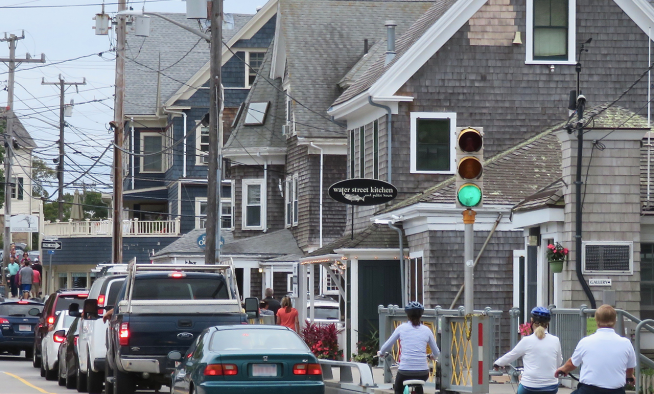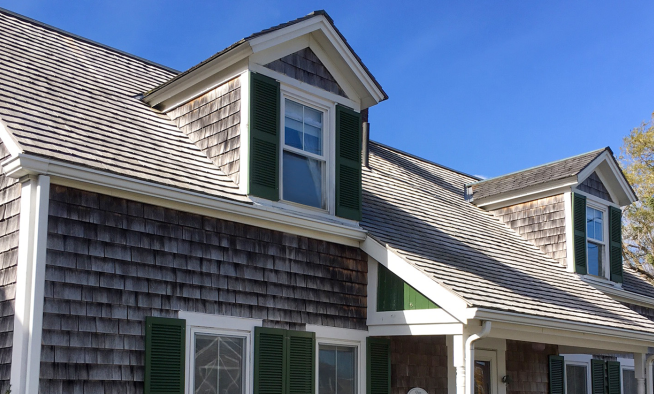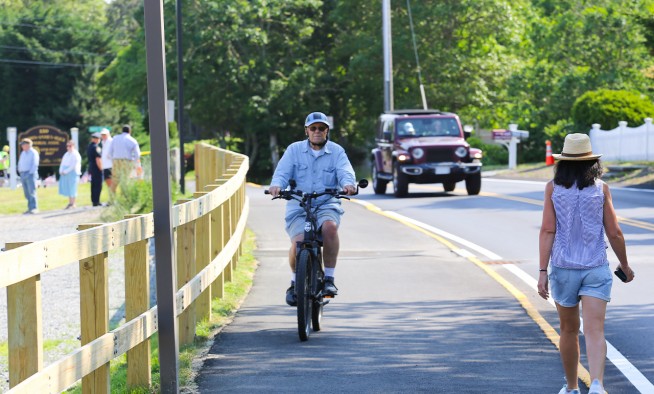Protecting Cape Cod’s vulnerable roadway network
The Cape Cod Commission’s Low-Lying Roads project is coming to a close this year. Since it was initiated in 2022, the project has identified roadways in the region most vulnerable to flooding from the combined effects of sea level rise and storm surge. Commission staff and contractor Woods Hole Group, working individually with each town, prioritized roads using a combination of state-of-the-art modeling and community engagement.
The towns of Barnstable, Bourne, Brewster, Dennis, Eastham, Orleans, Sandwich, Wellfleet, Truro, and Yarmouth were the first towns to undergo the modeling and analysis and receive design solutions for two road segments. Work with these towns concluded in Spring 2023.
Modeling and analysis is complete for the remaining towns of Chatham, Falmouth, Mashpee, Harwich, and Provincetown. Workshops are scheduled over the next few months to present and discuss design solutions.
This first-of-its-kind project will provide towns and the region with more than just conceptual solutions for priority roads – it has resulted in a database of the region’s most at-risk roadways, information that will help towns prepare and plan for the future. Low-lying roads data from all fifteen towns is now available in a regional data viewer created by Commission staff.
Work done through the Low-Lying Roads project highlighted areas of our regional transportation network that will face threats in the future. While safety and crash data typically drive prioritization for road work, planners are now incorporating resiliency considerations into the planning process. The Commission and towns can share data and resources developed through the Low-Lying Roads project with entities like the Massachusetts Department of Transportation to aid in prioritizing future projects.
For more: https://www.capecodcommission.org/our-work/low-lying-roads-project
Related Posts




